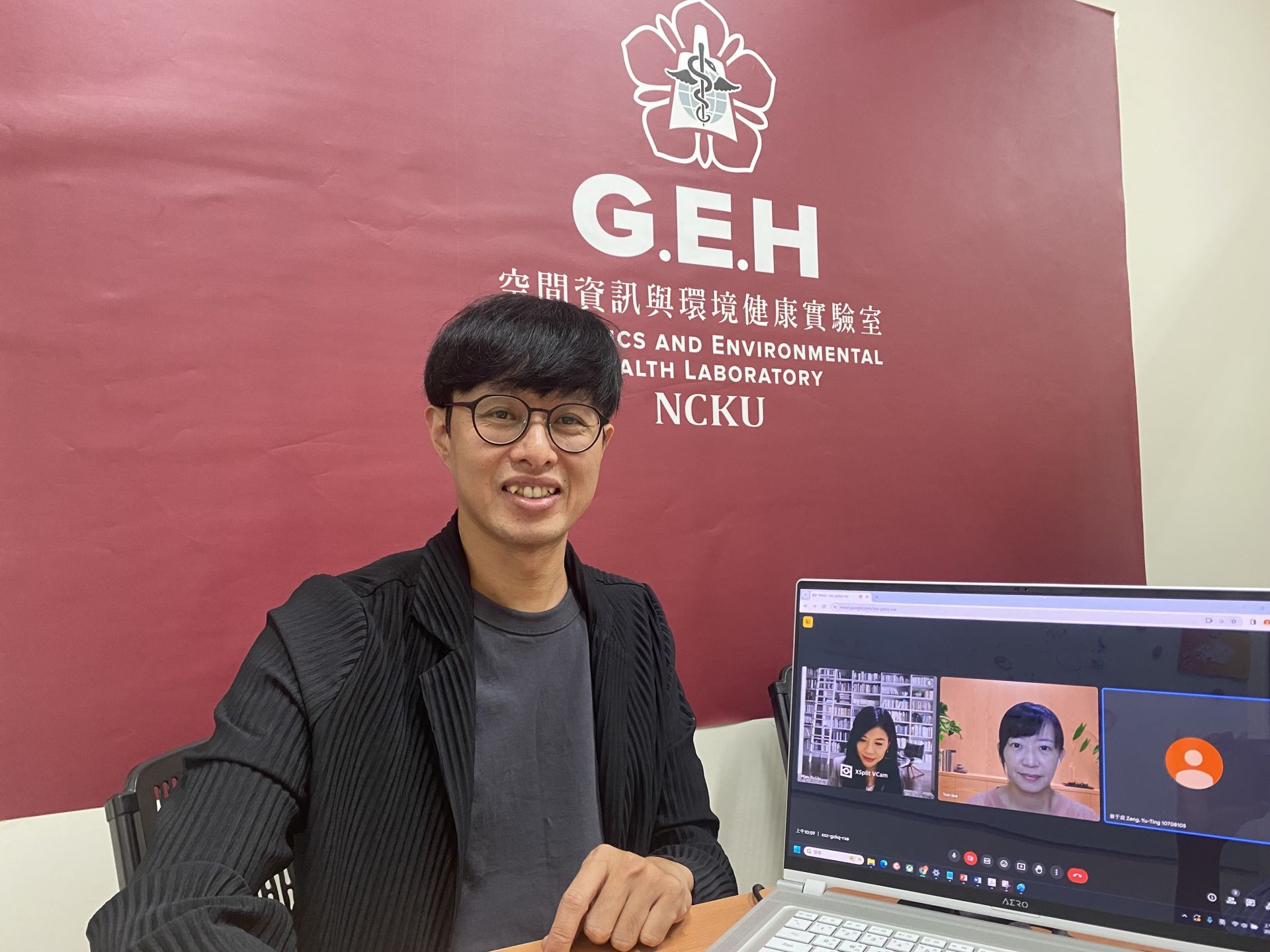SDG3
NCKU Professor Yi-Ching Wang, dedicated to lung cancer for 27 years, receives Ministry of Education Academic Award.
Professor Yi-Ching Wang (Scopus), the Chair Professor of the Department of Pharmacology at NCKU, has dedicated herself to lung cancer research for 27 years. In November 2022, she was honored with the 66th Ministry of Education Academic Award. Professor Wang's research scope has expanded from lung cancer to esophageal cancer, pancreatic cancer, colorectal cancer, and other cancers in recent years. She has established a database of cancer patients and cell lines in Taiwan, investigating the correlation between various tumor-suppressing genes, oncogenes, and cancer formation. Throughout her career, she has published a total of 155 SCI papers, been cited over 6,900 times, showcasing her innovative and practical contributions to medical technology development.
During her undergraduate years, Professor Wang developed a keen interest in the function and interaction between DNA, RNA and protein,after taking the molecular biology course by Professor Jia-Fern Chen form Chinese Culture University. After graduating, she pursued her studies in the United States and met another mentor, Professor Veronica Maher, at Michigan State University. Professor Maher's influence deeply impacted Professor Wang's academic enthusiasm and scientific writing skills, which she has continued to pass on to her students.
Upon returning to Taiwan after obtaining her Ph.D., Professor Wang began her cancer research journey. She collaborated with various departments, such as the Chest Medicine Division, Hematology-Oncology Division, Gastroenterology Division and Surgery Division at Taichung Veterans General Hospital, Taipei Veterans General Hospital, and NCKU Hospital, leading translational medical research teams. She has also delved into the field of cancer epigenetics and established several DNA methylation analysis methods. In 2002, she joined the National Science and Technology Council's "National Research Program for Genomic Medicine" as the principal investigator for the sub-project "Molecular Pathogenesis of Taiwan Lung Cancer," revealing novel cancer genes using genomics and epigenomics techniques.
In recent years, Professor Wang's research has focused on the molecular mechanisms of bidirectional interactions between immune cells and cancer cells in the tumor microenvironment. This research has been applied to molecular prognosis diagnosis of lung cancer, esophageal cancer, and pancreatic cancer patients. She has also been involved in the development of novel anticancer drugs, expanding into nanomedicine and the development of fully human monoclonal neutralizing antibodies, conducting preclinical validation of novel therapeutic antibodies, and preparing for future clinical and industrial applications.
Professor Wang's papers have been published in renowned international journals such as Journal of Clinical Investigation, Journal of Clinical Oncology, Nature Communications, and Theranostics. She has also received the Outstanding Research Award from the National Science and Technology Council in 2004, 2011, and 2015.
Looking back on her 27-year academic career, Professor Wang has supervised nearly a hundred master's and doctoral students, who have branched out into education, medical fields, and biotechnology industries. Her receipt of the Ministry of Education Academic Award has not only excited her research team but also garnered gratitude from her former students who have benefited from her contributions to teaching and academic research.
From cancer genetics to cancer epigenetics, novel genes from the own genome database, and now to studying vesicle transport in the tumor microenvironment, Professor Wang believes that each stage of her research has been in unfamiliar territory. Despite the challenges of transitioning research topics, conducting literature reviews, exploring research directions, establishing experimental platforms, experiencing failures, and making corrections, she has genuinely felt the process of exploring innovative topics to produce results to be both arduous and fascinating. She plans to continue her efforts in talent cultivation and academic service, striving in the fields of biotechnology, medicine, and translational medicine, with the hope that her research results will contribute more to the understanding, prevention, and treatment of cancer.
During her undergraduate years, Professor Wang developed a keen interest in the function and interaction between DNA, RNA and protein,after taking the molecular biology course by Professor Jia-Fern Chen form Chinese Culture University. After graduating, she pursued her studies in the United States and met another mentor, Professor Veronica Maher, at Michigan State University. Professor Maher's influence deeply impacted Professor Wang's academic enthusiasm and scientific writing skills, which she has continued to pass on to her students.
Upon returning to Taiwan after obtaining her Ph.D., Professor Wang began her cancer research journey. She collaborated with various departments, such as the Chest Medicine Division, Hematology-Oncology Division, Gastroenterology Division and Surgery Division at Taichung Veterans General Hospital, Taipei Veterans General Hospital, and NCKU Hospital, leading translational medical research teams. She has also delved into the field of cancer epigenetics and established several DNA methylation analysis methods. In 2002, she joined the National Science and Technology Council's "National Research Program for Genomic Medicine" as the principal investigator for the sub-project "Molecular Pathogenesis of Taiwan Lung Cancer," revealing novel cancer genes using genomics and epigenomics techniques.
In recent years, Professor Wang's research has focused on the molecular mechanisms of bidirectional interactions between immune cells and cancer cells in the tumor microenvironment. This research has been applied to molecular prognosis diagnosis of lung cancer, esophageal cancer, and pancreatic cancer patients. She has also been involved in the development of novel anticancer drugs, expanding into nanomedicine and the development of fully human monoclonal neutralizing antibodies, conducting preclinical validation of novel therapeutic antibodies, and preparing for future clinical and industrial applications.
Professor Wang's papers have been published in renowned international journals such as Journal of Clinical Investigation, Journal of Clinical Oncology, Nature Communications, and Theranostics. She has also received the Outstanding Research Award from the National Science and Technology Council in 2004, 2011, and 2015.
Looking back on her 27-year academic career, Professor Wang has supervised nearly a hundred master's and doctoral students, who have branched out into education, medical fields, and biotechnology industries. Her receipt of the Ministry of Education Academic Award has not only excited her research team but also garnered gratitude from her former students who have benefited from her contributions to teaching and academic research.
From cancer genetics to cancer epigenetics, novel genes from the own genome database, and now to studying vesicle transport in the tumor microenvironment, Professor Wang believes that each stage of her research has been in unfamiliar territory. Despite the challenges of transitioning research topics, conducting literature reviews, exploring research directions, establishing experimental platforms, experiencing failures, and making corrections, she has genuinely felt the process of exploring innovative topics to produce results to be both arduous and fascinating. She plans to continue her efforts in talent cultivation and academic service, striving in the fields of biotechnology, medicine, and translational medicine, with the hope that her research results will contribute more to the understanding, prevention, and treatment of cancer.
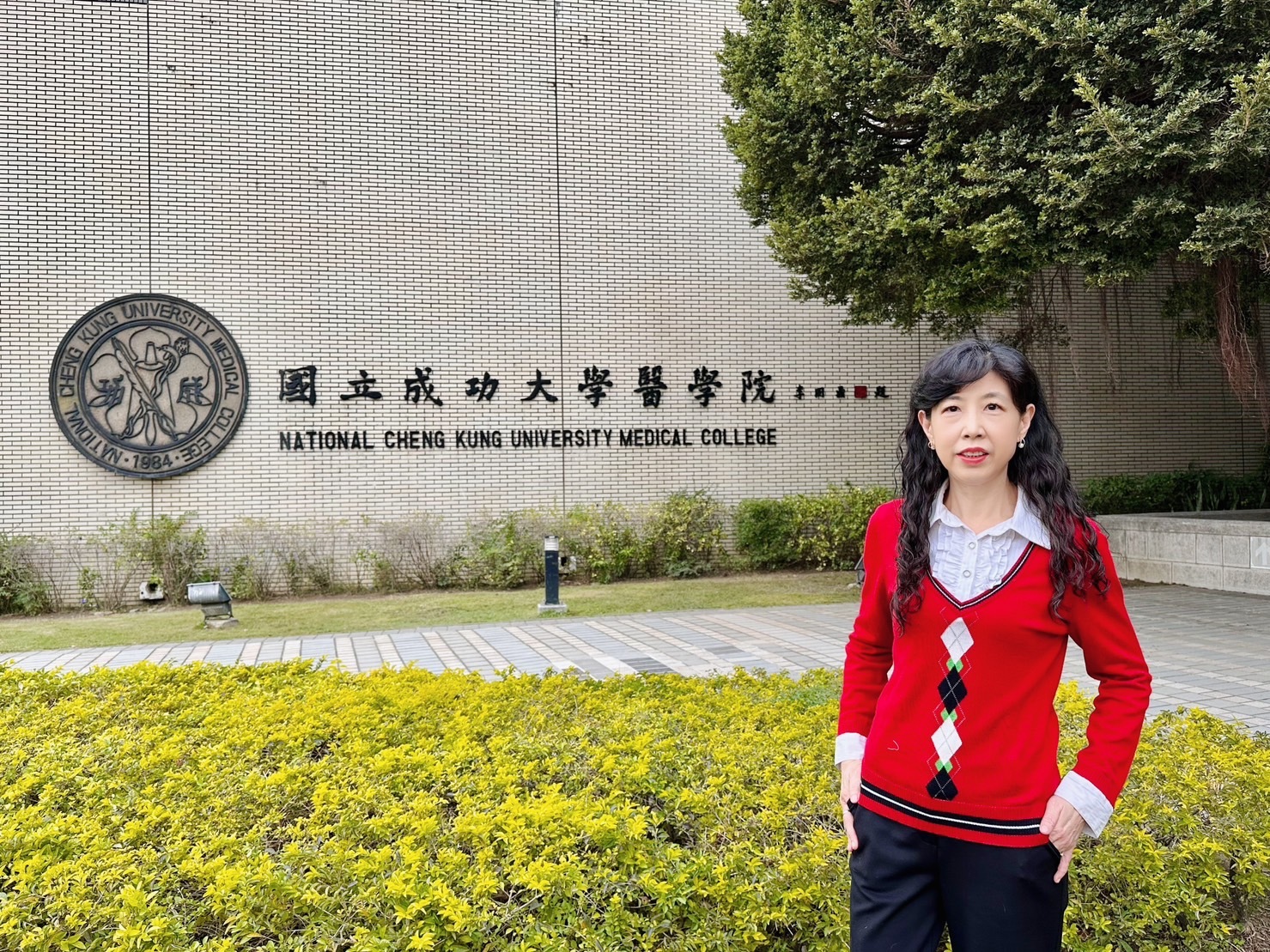
NCKU Professor Yi-Ching Wang, the Chair Professor of the Department of Pharmacology, has Been Honored with the 66th Academic Award.

Professor Wang (right) and her enlightening mentor Professor Jia-Fern Chen (left)

Professor Wang (left) and her mentor in America Professor Veronica Maher (right)
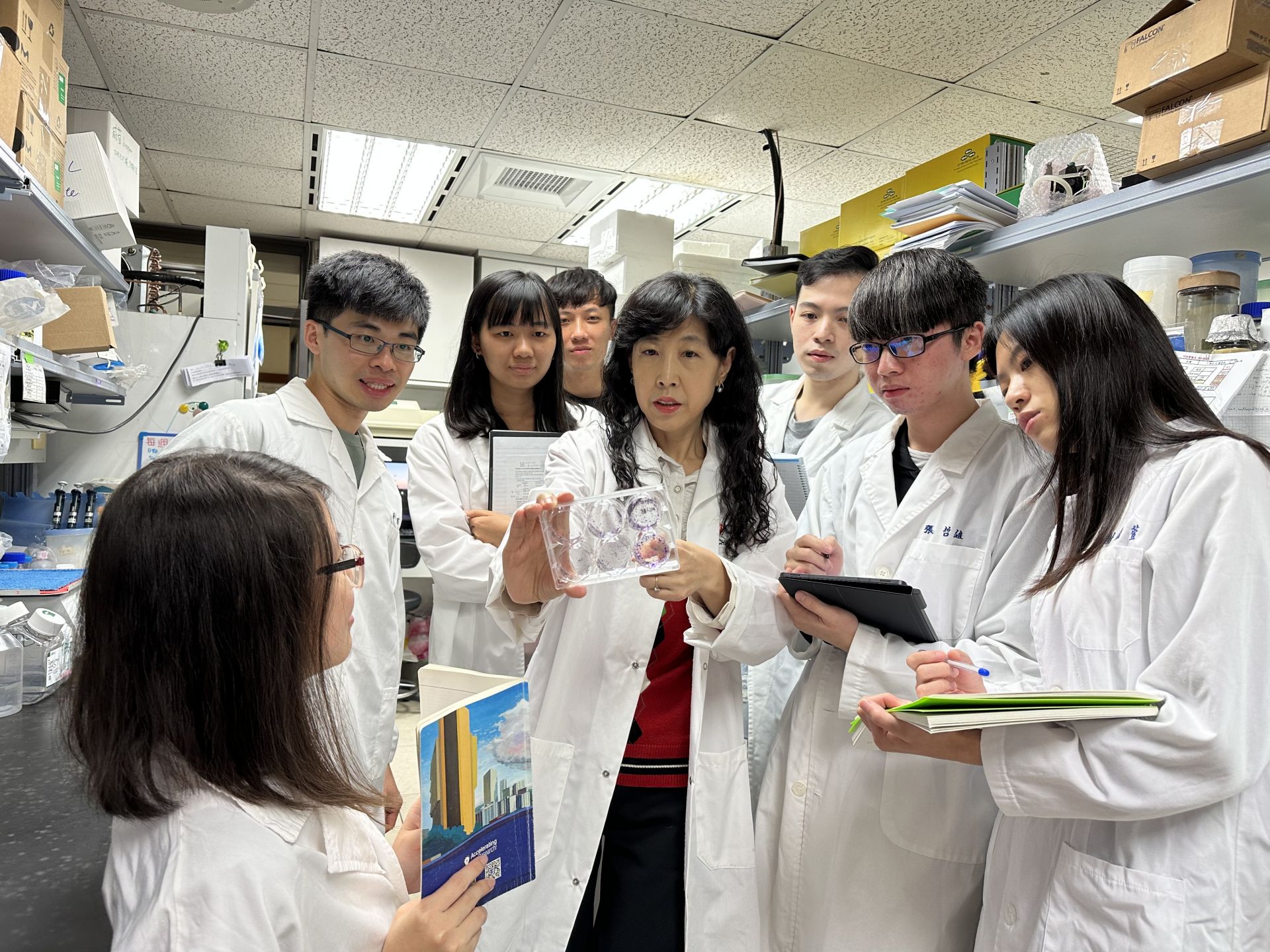
The interaction between Professor Wang and her students in the laboratory.
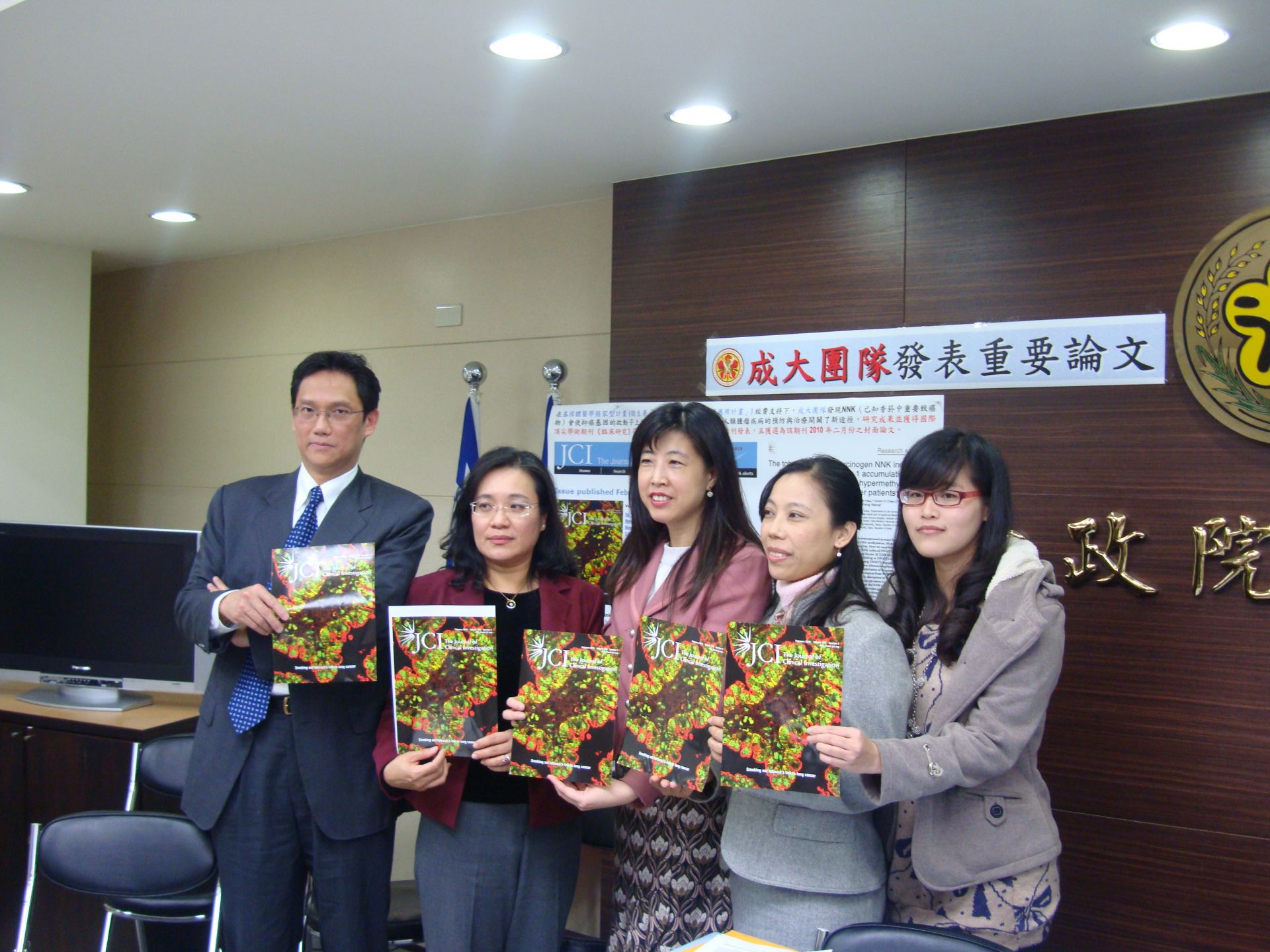
The paper press conference of Journal of Clinical Investigation 2010
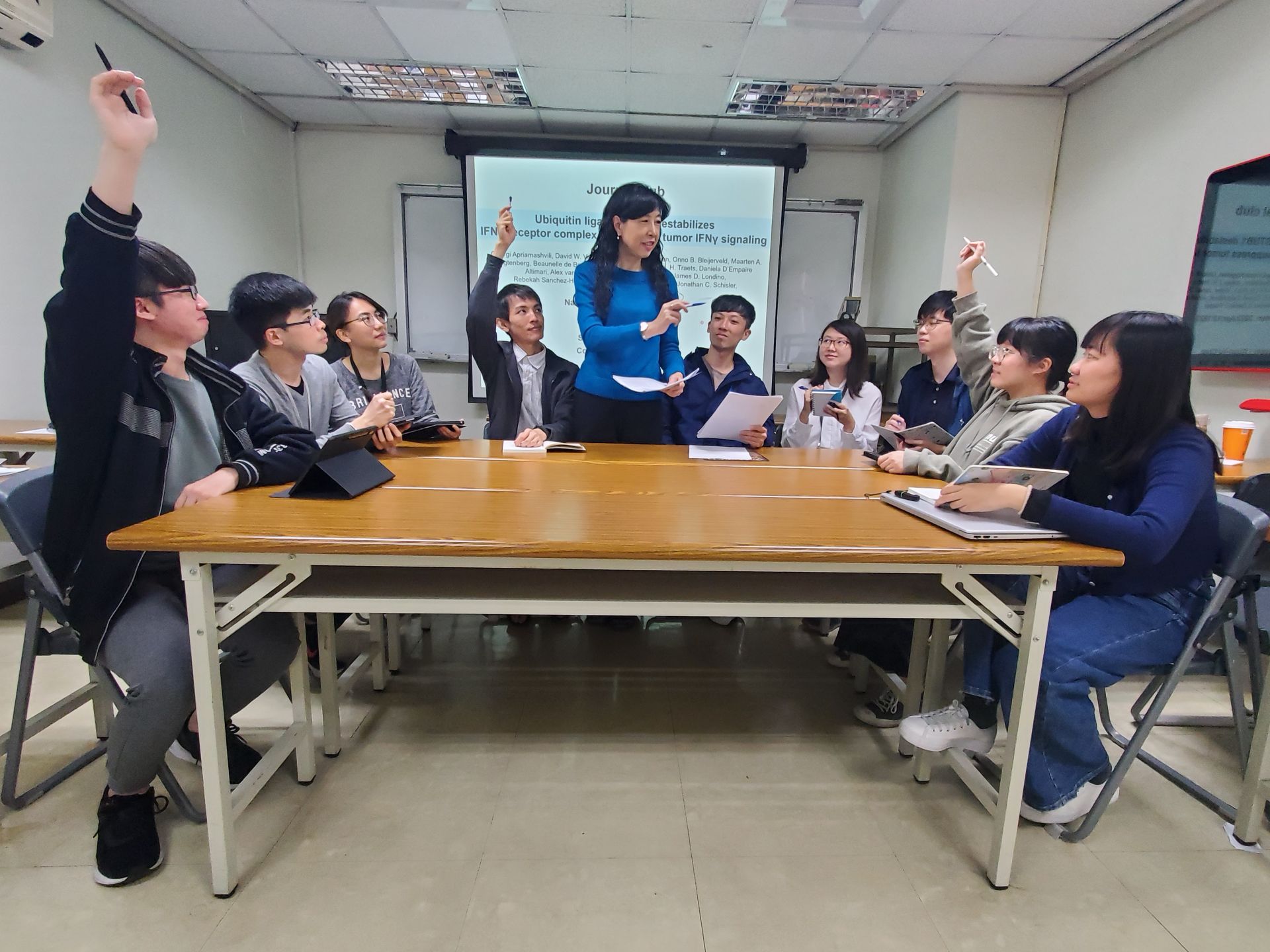
Professor Wang instructed in science reading and expressing.

The students gathered together to celebrate Professor Wang’s birthday.

SDG3NCKU CSIE & Harvard Reveal AI Diagnostic Bias, Featured as a Cover Article in Cell Reports Medicine
View more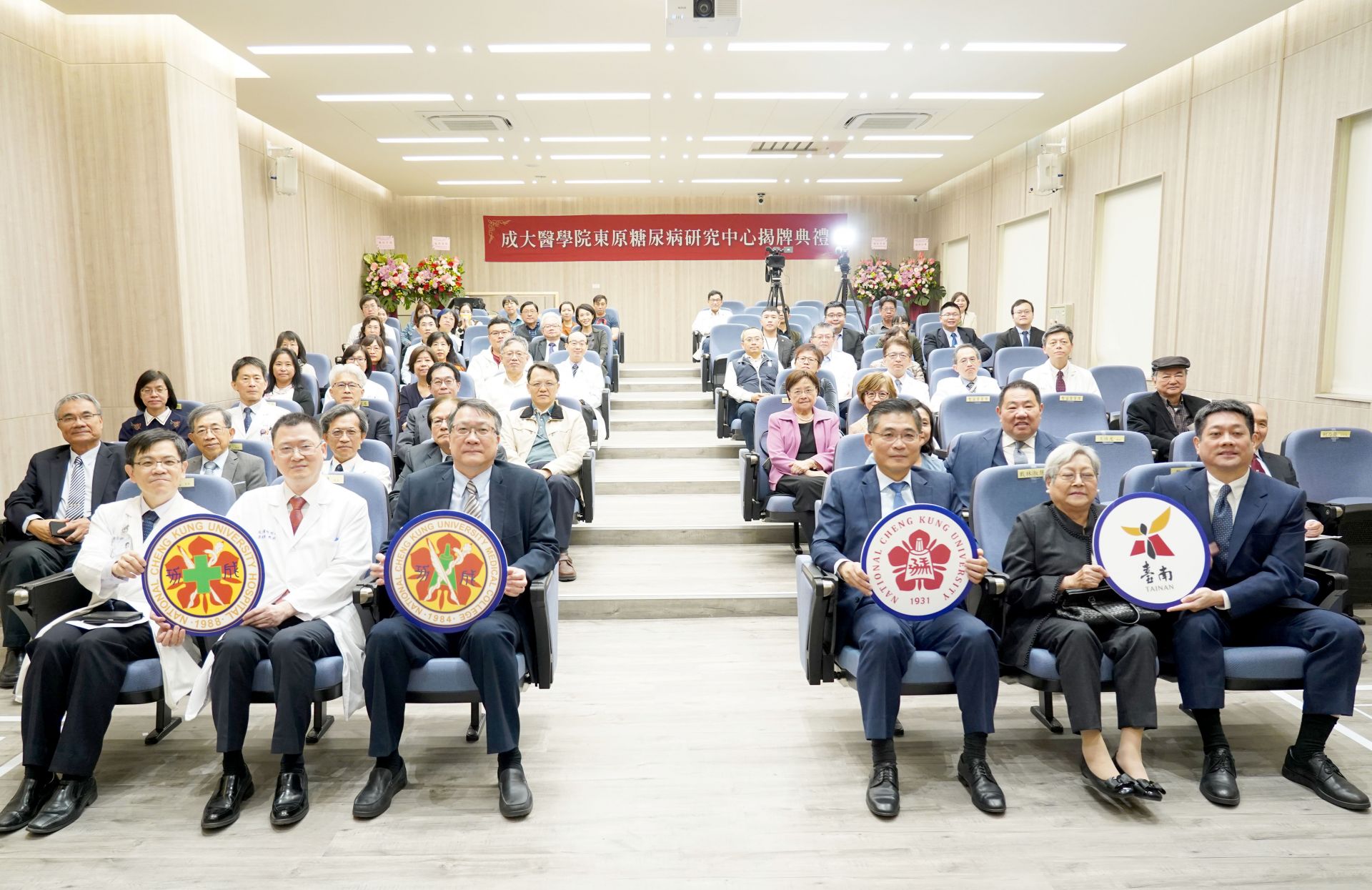
SDG3NCKU College of Medicine Unveils "Tongyuan Diabetes Research Center": Linking Research and Clinical Practice
View more